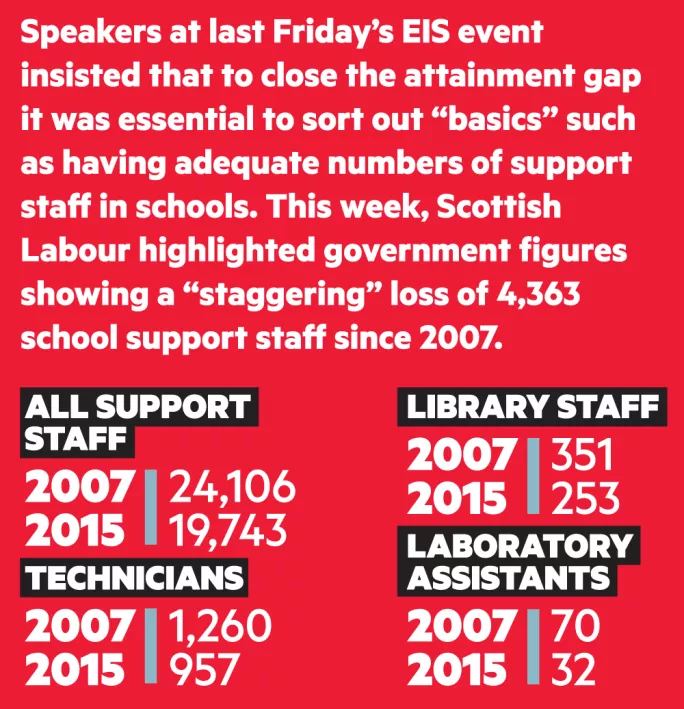Education secretary John Swinney has clashed with the general secretary of Scotland’s biggest teaching union over the controversial government review of school governance that promises to devolve more power to headteachers.
The EIS’ Larry Flanagan dismissed the review as a “huge waste of energy and a distraction from key issues” .
He made his comments at an EIS event on leadership, where he was followed at the lectern by Mr Swinney - who insisted the review was not a government “power grab”.
Mr Swinney insisted that changes to governance were essential for the government to succeed in its top priority of eliminating Scotland’s educational attainment gap.
“The governance review is about ensuring that schools are able to have the necessary flexibility and resources and direction. Without that, we cannot fulfil the potential of all young people within our society today,” he said, explaining that schools were best placed to decide on local educational priorities.
‘We’ve got to get on with it’
But Eddie Morrison, headteacher at St John Ogilvie High School in South Lanarkshire, told Mr Swinney that “the pace of change was too quick” on this issue, as he had found the night before when meeting parents. They were struggling to understand the purpose of the governance review, which was launched on 13 September and runs until 6 January.
Mr Swinney insisted that a swift turnaround was necessary as Scotland’s attainment gap had persisted for many years: “This has gone on too long - we’ve got to get on with it.”
And he countered concerns that changes to governance were driven by Scottish government ambitions to bypass local authorities and take more control of education. “It’s not a power grab by me, I can tell you that,” he said.
But Brian Boyd, emeritus professor of education at the University of Strathclyde, questioned whether the government had bitten off more than it could chew in seeking to eliminate the attainment gap.
“I’ve got a feeling that [Mr Swinney] has slightly underestimated the enormity of the task,” he said, at the event in Edinburgh.
Mr Boyd said he did not think Scotland was ready for the radical social change that would be necessary to close the gap entirely, unlike Finland, which had done away with private schools and a schools inspectorate in the 1970s.
Professor Boyd also stressed that early years and primary teachers in Scotland were “miles better” than those in countries such as Sweden, and Finland - but investment lagged behind.
The issue, he said, was that there were twice as many [teachers] in those countries.
He added: “If that means a high-tax, high-wage country, I’m up for it.”
Another headteacher, Willie Wight of Glasgow’s Hillhead High School, said that schemes such as the government’s Scottish Attainment Challenge were “window dressing”. A more pressing issue was to get adequate staffing in place - his school, for example, had started the school year down by three teachers, three pupil support assistants and two office staff.
Mr Flanagan, meanwhile, acknowledged some positive developments, such as the commitment to maintain teacher numbers. But he said a “national staffing standard” would be fairer as the current system set the threshold too low for councils that had relatively low numbers of teachers in the past. He also praised the more recent decision to phase out mandatory unit assessments at National 5 and Higher from 2017-18.
Overall, however, Mr Flanagan said there was still work to be done, especially when it came to the senior phase of secondary: “Where we are at the moment is not a good place.”
@Henry_Hepburn

